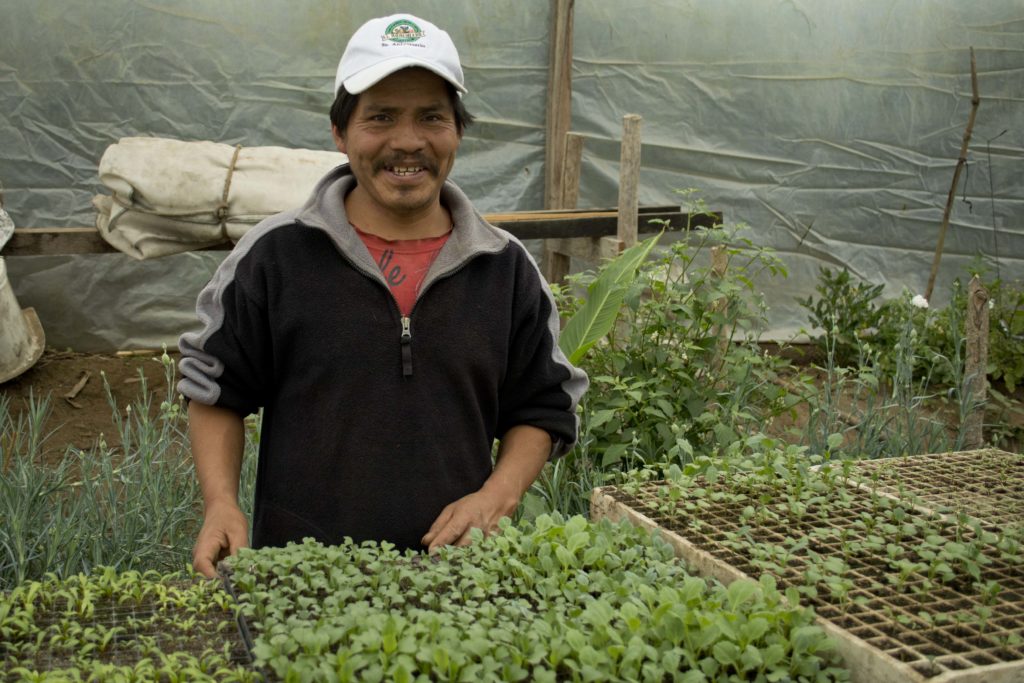
Families Now Producing Most of Their Own Food
As FRB’s Guatemala Sibinal program concludes, local families are now producing 75% of their own food, meaning they can spend more on education, health care, and housing. Magdalena tells her family’s story.
Before the program, my family only produced corn and a few vegetables. We didn’t have a source of income, though, so my husband traveled to Mexico for months at a time to work on the coffee farms. I was left to take care of the children, the house and the farming all by myself. We had no hope things would ever change.
But when we began our education in agro-ecology our situation started to change. I like farming the earth naturally, making our own organic fertilizers and insecticides and planting a greater variety of vegetables. At first, it was hard to stop using chemicals because that’s what we were used to. But gradually we found that what we grew organically tasted better, and we had less and less need to buy pesticides and fertilizer.
My husband is home more. He and I and our children farm the earth together and are more united as a family. We’re healthier because our food is better, more varied. We even earn an income. People come to our house to buy vegetables, and we also sell them at the Mexican border. Our whole community has improved because several families are farming and caring for our Mother Earth or eating more nutritious food from our farm plots.
We want to say thank you to everyone who supported us through the years. We gained knowledge, we put it into practice, and we continue improving every day.
Caption: Simple techniques like transplanting seedlings promote more frequent harvests and profitability
Guatemala Sibinal
Led by Mennonite Central Committee
4 Communities, 125 Households, 549 Individuals
